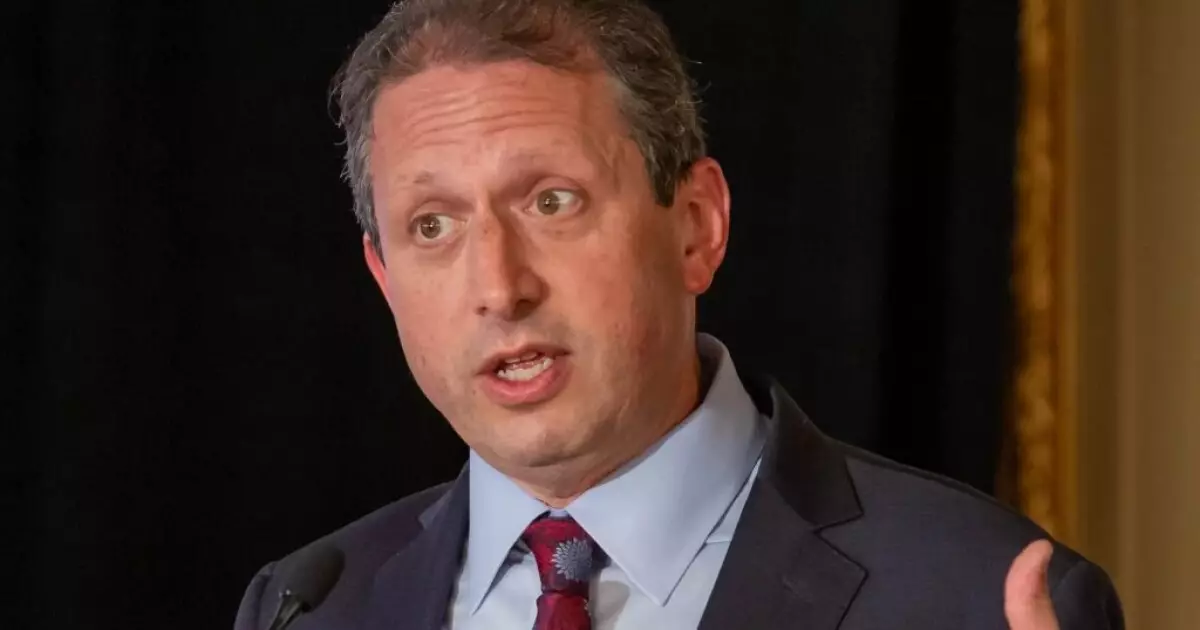In a significant policy push, New York City Comptroller Brad Lander has firmly endorsed a strategy to exclude fossil fuel infrastructure from the city’s massive pension fund investments. This initiative aims to position three of the city’s pension funds as pioneers in a national movement toward sustainable investing. With the staggering valuation of combined assets under management exceeding $285 billion, the impacts of such a decision resonate far beyond New York, potentially setting a precedent for pension funds across the United States to evaluate broader environmental risks within their investment portfolios.
Lander’s assertion that “climate risk is financial risk” encapsulates a framing approach essential to understanding the rationale behind this move. In light of increasing awareness of the adverse effects of climate change—ranging from extreme weather events to rising sea levels—the necessity of integrating environmental risk assessments into financial strategies has never been clearer. Identifying climate-related risks as systemic threats to portfolio stability compels investors to rethink traditional assumptions that have historically prioritized short-term gains over sustainable practices.
The Comptroller’s Bureau of Asset Management plans to formally present this strategic overhaul to the trustees of the three funds in early 2025. Given that Lander holds a crucial seat on the board of each system, his influence significantly shapes the direction of the funds’ investment strategies. Such policy initiatives can catalyze broader changes within the financial sector, as institutional investors re-evaluate their roles in an evolving socioeconomic landscape increasingly sensitive to climate issues.
Reflecting a commitment to reducing carbon emissions, these pension funds have embarked on various initiatives, including the adoption of a Net Zero Implementation Plan in 2023. This integrated strategy not only encompasses divestment from fossil fuel reserve owners within their public equities portfolio but also extends to private equity and infrastructure investments. By broadening the exclusion to include midstream and downstream fossil fuel infrastructures, such as pipelines and liquefied natural gas (LNG) terminals, the proposal demonstrates a growing recognition of the importance of avoiding significant capital exposure to the fossil fuel sector.
However, it’s critical to note that while Lander proposes broader exclusions, the pension funds currently retain previous investments in fossil fuel infrastructure assets. This aspect of the proposal underscores the complex nature of transitioning investment portfolios, which can face obstacles due to pre-existing commitments.
Part of the rationale for the new policy includes the funds’ notable commitment to sustainable investment practices, directing a combined $11 billion into “energy and climate solutions” as part of their net zero emissions strategies. This funding pattern exemplifies the proactive approach these pension funds are taking to align their portfolios more closely with environmentally sustainable practices. By investing significantly more in renewable resources compared to fossil fuels, the funds are setting a robust example while contributing to a low-carbon economy.
Moreover, the engagement in shareholder advocacy—such as influencing major banks like JP Morgan Chase and Citibank to disclose their green versus fossil fuel financing ratios—demonstrates a more aggressive stance in promoting corporate accountability towards sustainable practices. These efforts signal a growing resolve to not only manage risks but to shape market behaviors conducive to climate resilience.
Lander’s progressive vision starkly contrasts with policies endorsed by Republican-dominated states, which actively promote investments in traditional fossil fuel industries. Such divergent approaches illuminate the political and ideological battle over climate responsibility versus economic viability. The Comptroller’s statement regarding being “a tough partner to have for private equity and infrastructure funds” serves as a reminder of the changing dynamics within investment landscapes, illustrating that adhering to sustainability can redefine partnerships in finance.
The advocacy by New York City’s pension funds under the leadership of Comptroller Brad Lander signifies a transformative approach to investment strategies that prioritize long-term sustainability over short-term profitability. As global concerns about climate change mount, the shift toward excluding fossil fuels may well inspire similar initiatives both locally and nationally. This movement not only aims to protect environmental integrity but also enhances the financial health of the pension funds by bracing against imminent climate impacts deemed too costly to ignore in the investment realm. The road ahead may be challenging, but it undoubtedly sets a foundation for responsible investment practices that could reshape the future financial landscape.


Leave a Reply